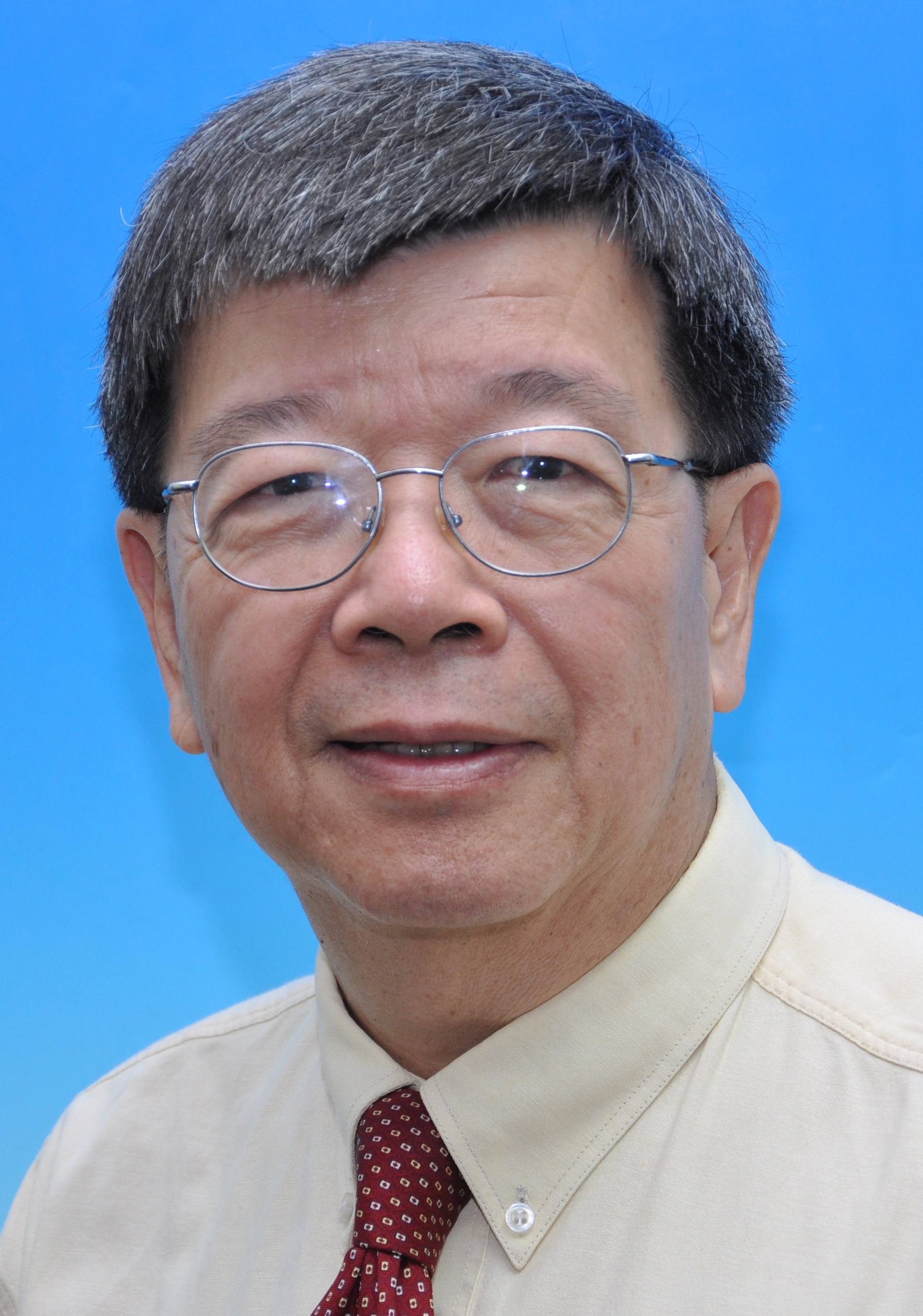Chan Kit Lam

BPharm
PhD (NUS)
J02 Room 137
School of Pharmaceutical Sciences
Tel : 604-6576836 (direct) and +604-6532696 (Ext. 2696)
Email: klchan@usm.my, kitlamc@gmail.com
Dr. Chan Kit Lam is a Professor of Pharmaceutical Chemistry at the School of Pharmaceutical Sciences, Universiti Sains Malaysia, Penang, Malaysia, and served as Deputy Dean and Programme Chairman of the Pharmaceutical Chemistry Discipline. He was also the former Director of the Center for Drug Research, USM. He received his Bachelor of Pharmacy Degree (Hons) and Doctorate Degree from the National University of Singapore. His PhD was in medicinal chemistry but his research interests expanded to natural product chemistry and herbal medicine. He was a Commonwealth Fellow at the School of Pharmacy, and the London School of Hygiene and Tropical Medicine, University of London, a UNESCO Visiting-scientist at the Natural Products Research Institute, Seoul National University, Korea, a Japan Society for Promotion of Science (JSPS) Fellow at the Department of Synthetic and Biological Chemistry, Kyoto University, Kyoto, Japan and a Japan Bioindustry Association (JBA) Visiting-scientist to Tokyo University of Pharmacy and Life Science, Tokyo, Japan. He has authored and co-authored more than 200 research papers, two books and several patents including invention disclosures filed locally and internationally. Professor Chan served as WHO Consultant to the Institute of Malariology, Parasitology and Entomology (IMPE), in Hanoi, Vietnam. He was a WHO Advisor to the WHO Regional Office for the Western Pacific at Manila, Philippines, to develop guidelines for the safety and efficacy of herbal medicines. He also acted as a WHO Consultant to integrate traditional and modern medicine in Beijing, China. Prof Chan served as a consultant to Maltrade and Ministry of Agriculture and Agro-based, Malaysia during a dialogue with FDA Taiwan at Taipei, 2012. He was an Exco-member to the Malaysian Natural Products Society and an Editor-in-Chief for the Proceedings of the International Conference on the Use of Traditional Medicines and Other Natural Products in Health Care at Penang. He was Co-chairman of the International Conference on Natural Products (ICNP 2010). He was invited as a plenary speaker at natural product conferences in Malaysia, China, Korea, Poland, South Africa, Indonesia, Singapore and India. He is a member of the Editorial Board of Phytotherapy Research since 1998. He also served as a reviewer of manuscripts for Malaria Journal, Journal of Chromatography B, Journal of Pharmacy and Pharmacology, Natural Product Communications and Journal of Ethnopharmacology. 2. Mahfoudh Abdulghani, Abas Hj Hussin, Siti Amrah Sulaiman and Kit-Lam Chan (2012). The ameliorative effects of Eurycoma longifolia Jack on testosterone-induced reproductive disorders in female rats. Reproductive Biology, 12: 247-255. 3. Kit-Lam Chan (2012). A Response to the Comments on the Relevance of Eurycoma longifolia Jack to Food and Food Chemistry, Food Chemistry, Food Chemistry, 134: 1713. 4. Pooi-Fong Wong, Wei-Fun Cheong, Meng-Hooi Shu, Chin-Hoe Teh, Kit-Lam Chan and Sazaly AbuBakar (2012). Eurycomanone Suppresses Expression of Lung Cancer Cell Tumor Markers, Prohibitin, Annexin 1 and Endoplasmic Reticulum Protein 28. Phytomedicine, 19: 138-144. 5. Koichiro Koyama, Yusuke Hirasawa, Alfarius E. Nugroho, Toshio Kaneda, Teh Chin Hoe, Kit-Lam Chan, Hiroshi Morita (2012). Alsmaphorazines C-E, indole alkaloids from Alstonia pneumatophore. Tetrahedron, 68: 1502-1506 6. Chin-Hoe Teh, Vikneswaran Murugaiyah, Kit-Lam Chan (2011). Developing a validated liquid chromatography-mass spectrometric method for the simultaneous analysis of five bioactive quassinoid markers for the standardization of manufactured batches of Eurycoma longifolia Jack extract as antimalarial medicaments. Journal of Chromatography A, 1218: 1861-1877 7. Bin-Seng Low, Chin-Hoe Teh, Kah-Hay Yuen and Kit-Lam Chan (2011). Physico-chemical Effects of the Major Quassinoids in a Standardized Eurycoma longifolia Extract (Fr 2) on the Bioavailability and Pharmacokinetic Properties, and their Implications for Oral Antimalarial Activity. Natural Product Communications, 6: 337-341. 8. Chin-Hoe Teh, Mahfoudh Abdulghani, Hiroshi Morita, Motoo Shiro, Abas Hj Hussin, Kit-Lam Chan (2010). Comparative X-ray and Conformational Analysis of a New Crystal of 13a,21-Dihydroeurycomanone with Eurycomanone from Eurycoma longifolia Jack and their Anti-estrogenic Activity Using the Uterotrophic Assay. Planta Medica, 77: 128-132. 9. Koichiro Koyama, Yusuke Hirasawa, Alfarius Eko Nugroho, Takahiro Hosoya, Teh Chin Hoe, Kit-Lam Chan, and Hiroshi Morita (2010). Alsmaphorazines A and B, Novel Indole Alkaloids from Alstonia pneumatophora. Organic Letters, 12: 4188-4191. 10. Kwok-Wen Ng, Salizawati Muhamad Salhimi, Amin Malik Shah Abdul Majid and Kit-Lam Chan (2010). Anti-angiogenic and cytotoxic studies of some medicinal plants. Planta Medica, 76: 935-940Courses Taught
Research Interest
There has been a rapid resurgence on the use of traditional medicine for the prevention and treatment of ailments, despite the lack of scientific and clinical evidence to support the use. Many, especially those of herbal origin failed regulatory requirements of safety and efficacy. Whilst generally assumed that most herbal remedies are safe, adverse effects have been reported not only from contamination by microbes, toxic metals or chemicals, but also from indiscriminate adulteration with potent allopathic drugs. Some herbs contain intrinsically toxic chemical constituents and their limitation is necessary so as not to present a health hazard. Presently, many herbal products in the market lack quality control and effectiveness. Against this background, it is therefore important to investigate and develop evidence-based medicinal herbs following stringent protocols that involve bioactivity-guided phytochemical fractionation and spectroscopic structural elucidation, bioactive extract standardization using validated phytochemical analysis, pharmacological, toxicological, teratological, formulation, pharmacokinetic and bioavailability studies.On-going studies on some herbs of interest in my laboratory include Eurycoma longifolia (for anti-malarial, aphrodisiac, anti-infertility and anti-tumour properties), Andrographis paniculata (for cholinesterase inhibition, anti-fertility, and hepatoprotective properties) Phyllanthus niruri (antihyperuricemic activity and cholinesterase inhibition) and Clinacanthus nutans (for anti-tumour and antiviral activity).
Expertise
Brief CV
Selected Publication
1. Bin-Seng Low, Prashanta Kumar Das, Kit-Lam Chan (2013). Standardized quassinoid-rich Eurycoma longifolia extract improved spermatogenesis and fertility in male rats via the hypothalamic–pituitary–gonadal axis. Journal of Ethnopharmacology, 145: 706-714.
- Hits: 14326